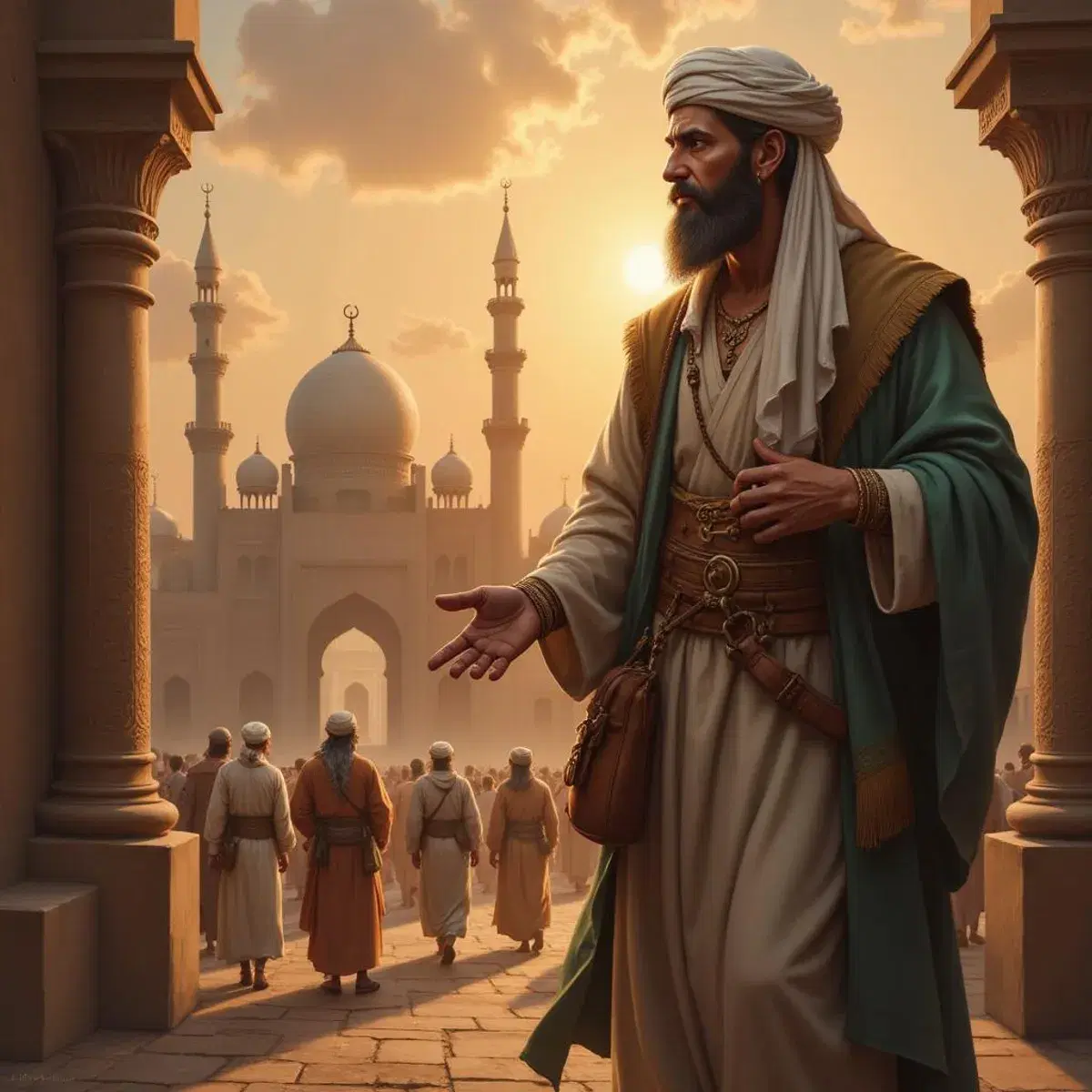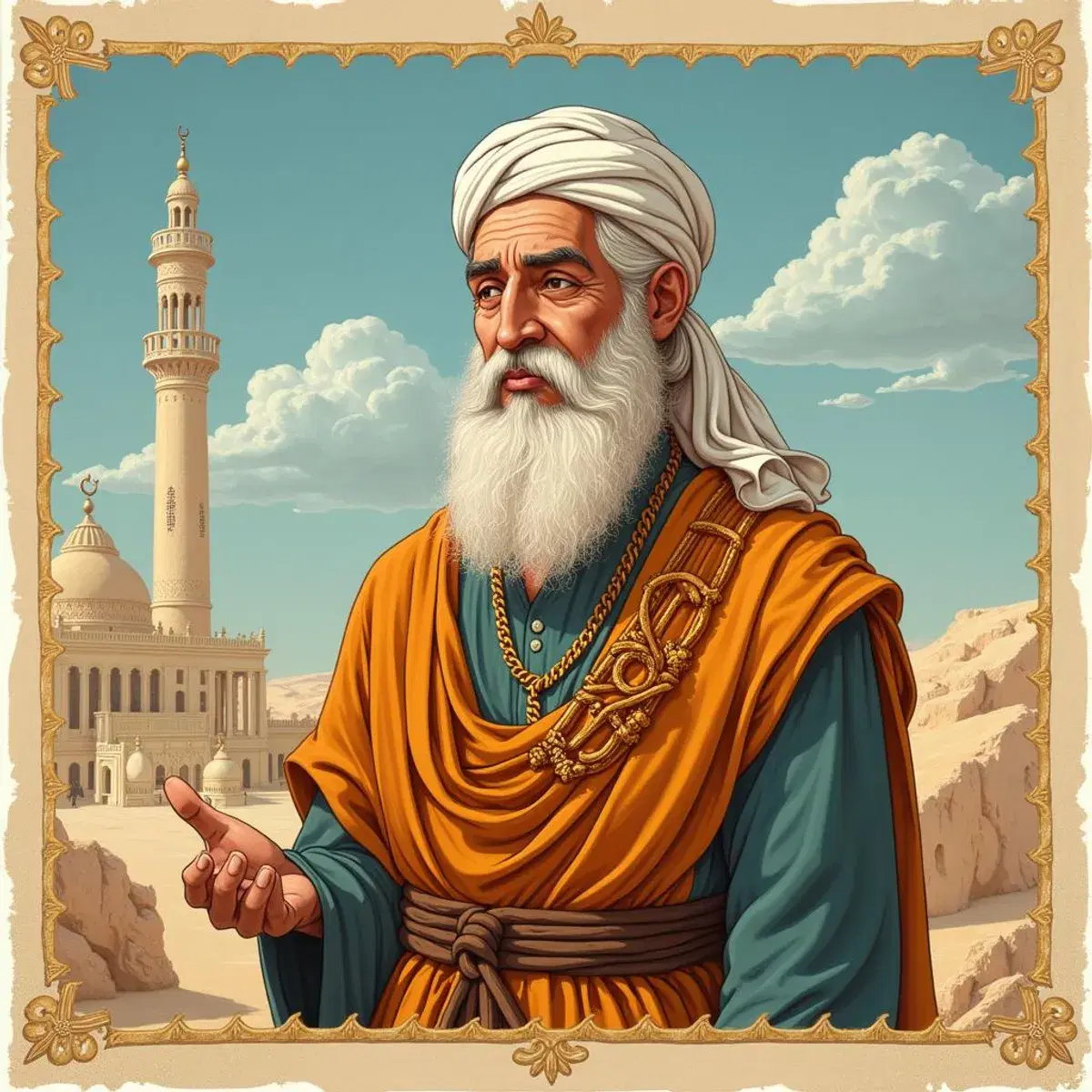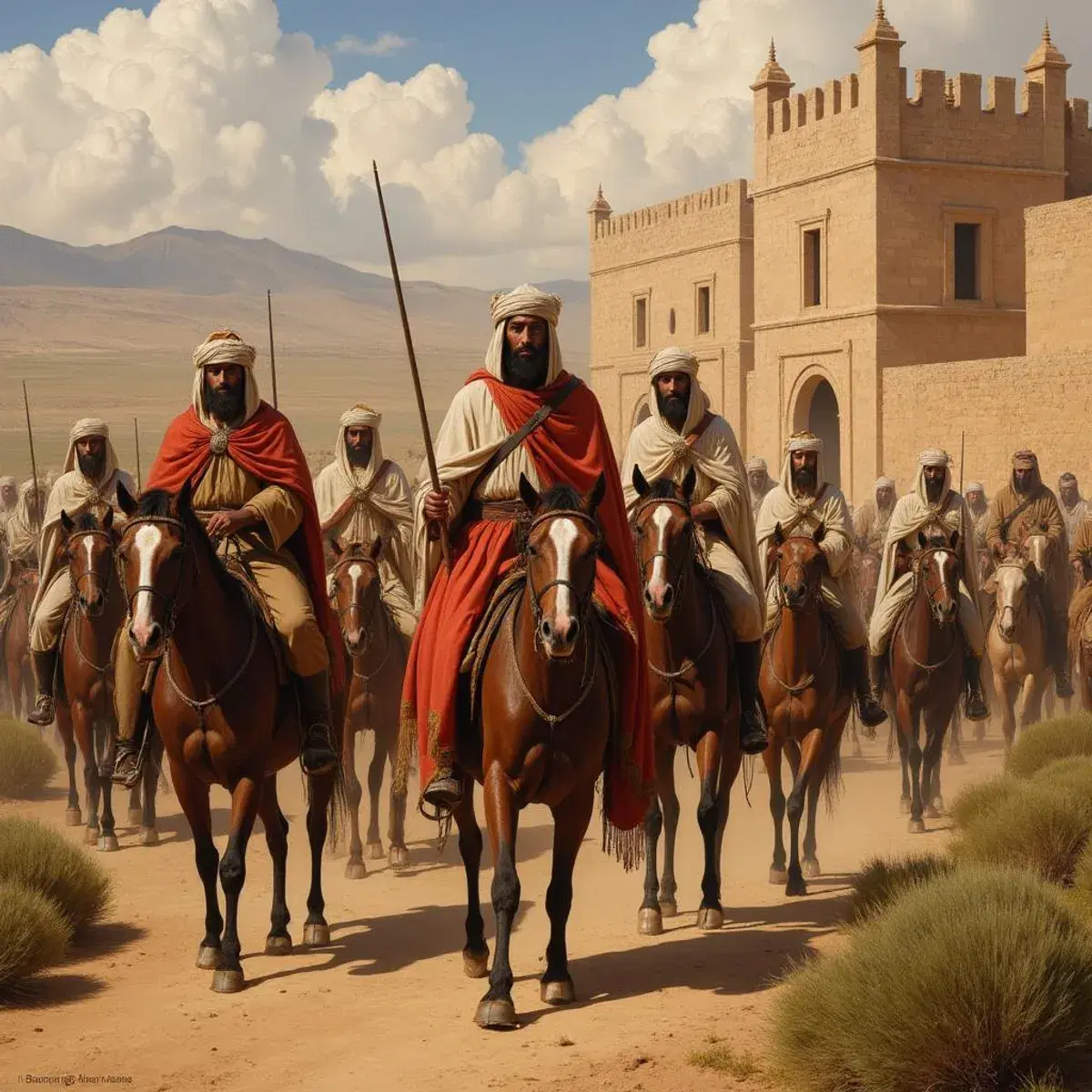Rise of Islam
Long ago, while the descendants of Clovis fought over his kingdom and the Church grew richer and more powerful, a new and unexpected challenge emerged in the East. This challenge came from the birth of a new religion among the Arab people, which would soon change the world forever.

Rise of Islam
Life in Arabia Before Islam
Arabia, a vast desert land with few oases, was home to tribes of people who either herded animals or traded goods using caravans. The harsh desert life made them tough and resourceful. However, while they had poetic minds and kind hearts, they were often superstitious and harsh in their ways.
The Arabs were divided into many tribes, each with its own beliefs. Some worshipped stars, others idols made of wood or stone, and many believed in spirits called "genii," like those in the story of Aladdin. Since Arabia was close to Palestine, some Arabs learned about Judaism and Christianity, but most remained loyal to their old traditions. By the seventh century, Arabia lacked a common religion or government to unite its people.
Mohammed: The Founder of Islam
In the seventh century, a man named Mohammed changed everything. Born into a well-known tribe, Mohammed had a hard life. His parents died when he was very young, and he was raised by an uncle who was too poor to support him. As a boy, Mohammed worked as a shepherd, a job usually done by slaves. When he was thirteen, he joined his uncle on a caravan trip to Syria, where he saw the world beyond Arabia for the first time.
As an adult, Mohammed worked for a wealthy widow who owned many caravans. He managed her business so well that she eventually married him. She became his first supporter when he began teaching his new ideas about religion.
Mohammed often spent time alone in the mountains near Mecca, fasting and praying. He was deeply spiritual and believed he had visions. When he was forty, he had a vision of the angel Gabriel, who told him to "Read!" Gabriel gave him a message: "There is only one God, and Mohammed is His Prophet."

Mohammed
Growth of Islam
When Mohammed began teaching his new faith, he faced many challenges. At first, only a small group of people followed him. After three years, he had just forty followers. The leaders of Mecca, who profited from idol worship, were angered by his message and forced him to leave the city in 622 AD. This event, called the Hijra, marks the start of the Islamic calendar, just as the birth of Jesus marks the start of the Christian calendar.
After the Hijra, Mohammed gained more followers. He began teaching that Islam could spread through battle, and many warriors joined his cause. Within ten years, Mohammed united all the tribes of Arabia under Islam. The old idols were destroyed, and a new, shared faith brought the people together.
Koran and the Rules of Islam
Though Mohammed could not read or write, his followers wrote down his teachings. These writings, collected after his death, became the Koran, the holy book of Islam. The Koran recognizes prophets like Adam, Noah, Abraham, and Jesus but considers Mohammed the greatest and last prophet.
The Koran describes Paradise as a beautiful garden where the faithful live forever in peace and comfort. To reach Paradise, Muslims must follow strict rules: they pray five times a day facing Mecca, avoid gambling and alcohol, and fast during the holy month of Ramadan. Dying in battle for the faith was seen as a guaranteed way to enter Paradise, inspiring great bravery in Muslim warriors.
Islam’s Rapid Expansion
Within a hundred years of Mohammed's death, Islam had spread across a vast empire. This empire stretched from the Indus River in Asia to the Atlantic Ocean, covering parts of Asia, Africa, and Europe. The call to prayer echoed in lands that were once unknown to the Arabs.
Moors Conquer Spain
In 711 AD, a Muslim general named Tarik led an army into Spain. Near the coast, he built a fortress on a large rock, which became known as Gibraltar, meaning "Mountain of Tarik." At that time, Spain was ruled by the Visigoths, but their kingdom was weak and divided.

Moors
A great battle lasted eight days, and the Christian Visigoths, led by King Rodrigo, were defeated. A Spanish poem tells of Rodrigo's sorrow as he fled the battlefield:
“Last night I was the King of Spain—to-day no king am I;Last night fair castles held my train—to-night where shall I lie?Last night a hundred pages did serve me on the knee—To-night not one I call my own—not one pertains to me.”
The fall of the Visigoths marked the start of Muslim rule in Spain, which lasted until the time of Queen Isabella and Christopher Columbus.
Moors Push into France
After their victory in Spain, the Moors tried to conquer Gaul (modern-day France). However, the Franks, unlike the Visigoths, were strong and united. They put up fierce resistance, halting the Muslim advance.
Conclusion
The rise of Islam transformed the ancient world. Mohammed’s teachings united the Arab tribes and inspired them to build one of history’s greatest empires. This new faith brought cultural and scientific achievements and left a lasting impact on the world.





